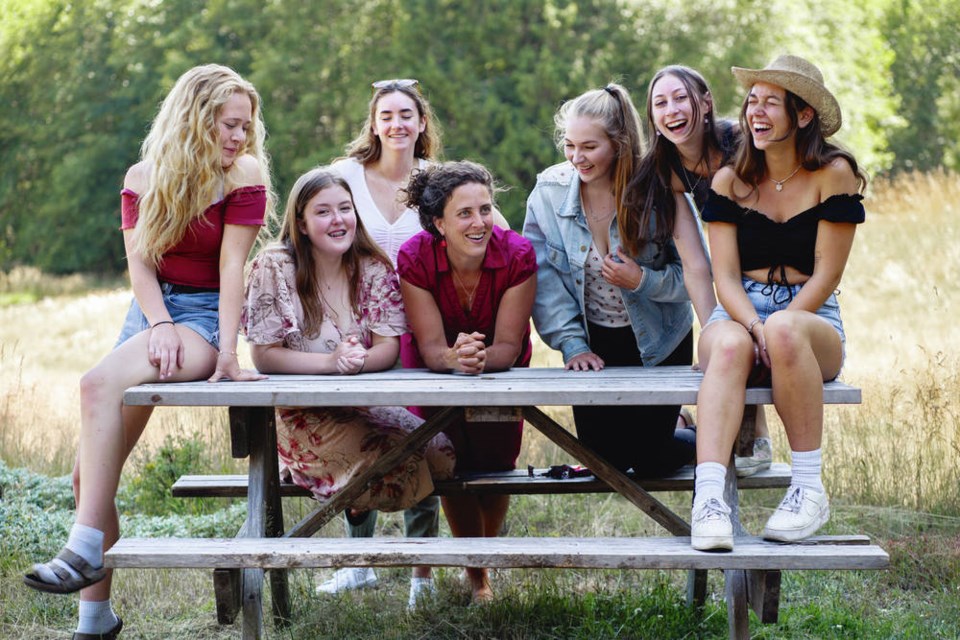An after-school peer-group mentorship program that gives girls a safe space for sharing, learning and practising important skills is now in its 12th year.
The Pass It On Program, hosted by The Circle Salt Spring Education Society, is “the little engine that could, said Kate Nash, the society’s program and development facilitator.
Instead of using adults who could be seen as talking down to youth, the program recruits high school students to serve as mentors for participants — called buddies in the program — for intermediate grades.
The mentors are, in turn, supported by Nash, who has been with the program since its inception.
There is no shortage of participants every year. In normal years, the program welcomes about 22 girls from grades 10 to 12 and the same number of Grade 8 girls, although the intake shrank to 15 in 2020 due to the pandemic.
“People have had sisters, friends who had taken the program over the years and we have built up a level of buy-in, a level of trust in the community,” said Nash, 40. “It grows every time we form a new circle.”
The group meets weekly in a safe environment where participants can connect, be vulnerable, listen and be listened to without judgment.
Along with just hanging out and doing activities, the group can delve into discussions of deeper topics.
The goal is to help young people build confidence, self-awareness skills for healthy relationships, empathy, acceptance of differences and the ability to make better choices.
“Children that can build strong relationships are far less likely to be a statistic,” said Nash.
The program is inclusive, welcoming girls who identify as cisgender, trans and non-binary.
A program for boys is in development.
“We recognize we have to reach both genders in order to create change,” said Nash, noting that while the messaging would be the same, strategies that work with women won’t necessarily work with men.
Despite the differences, the desired end result is the same — the formation of healthy relationships and support for life transitions.
The program builds on the content in the Empathy Project, which targets students in Grades 3 to 5, and The Respect Project, an in-school program for Grades 6 to 8.
Nash says the best thing a parent can do for their children is to provide them with space where they can feel safe, share, hang out, sing and support each other.
“Help them build their own change.”
For more information, go to thecircleeducation.org.
parrais@timescolonist.com



